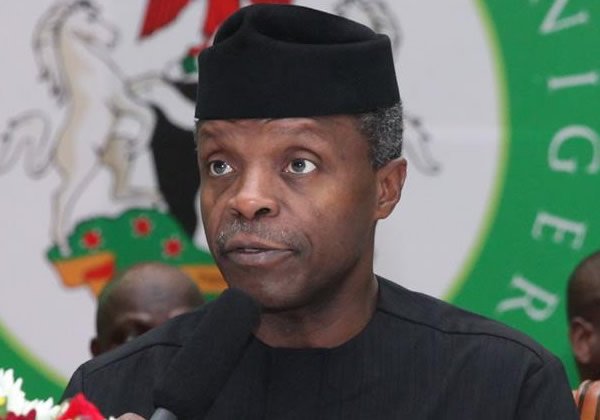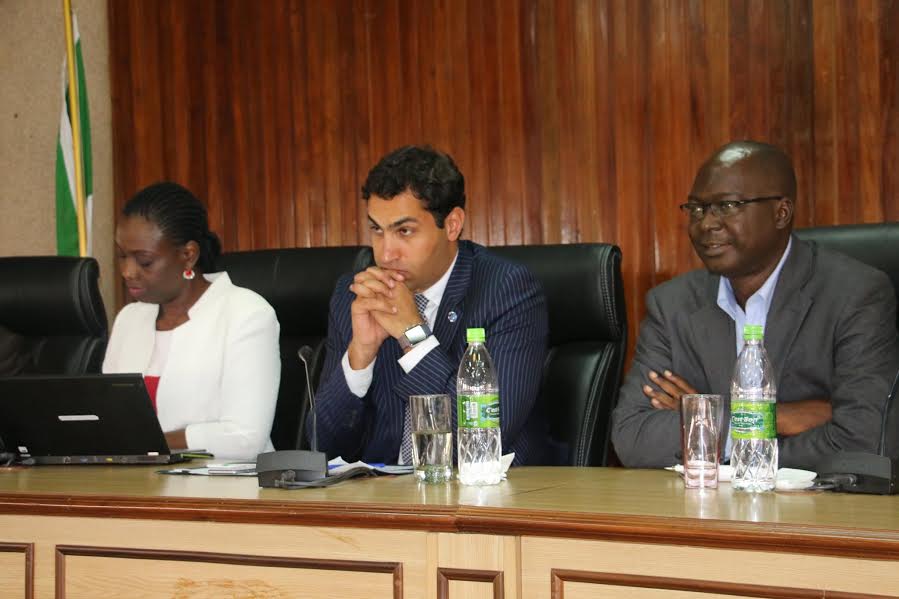BY UGOCHUKWU AMASIKE
One of the tragedies of the current unitary system of governance we practice; and the consequential mono-product economy it’s foisted on the Nigerian federation, is the transformation of Nigeria’s federating units into dependent and mere distribution centres.
Today, Nigeria has states that are incapable of meeting the most elementary requirements of a government, even the payment of salaries is a herculean task, not to mention the provision of critical infrastructure and social services.
To correct this situation, the states must be empowered to legally harness their competitive advantages and develop their economies, and become self-sustaining and this can only be attained through the devolution of powers to the states.
Advertisement
The current situation where the 36 states of Nigeria are prevented from harnessing non-oil mineral resources in their domains by reason of the limitations imposed on them by the 1999 Constitution vis a vis the resultant effect of the combined provisions of section 44(3) and part 1, item 39 of the 2nd schedule (exclusive legislative list) is self-defeatist and unproductive.
Section 44 (3) of the 1999 Constitution provides thus: “Notwithstanding the foregoing provisions of this Section, ‘the entire property in and control of minerals, mineral oil and natural gas in, under or upon any land in Nigeria…shall vest in the Government of the federation’ and shall be managed in ‘such manner’ as may be prescribed by the National Assembly. ”
While Part 1, item 39 of the 2nd schedule of the 1999 constitution goes on to state that “…Mines, and Minerals…and Geological Surveys” are within the sole purview of the federal government. Thus, a state government in Nigeria can not conduct a mere geological survey of non-oil minerals in its domain, that’s how “progressive” the 1999 Constitution is.
Advertisement
We are invited to contrast this status quo with the legal institutional framework that existed in the 1960’s, a framework that was enabled by Nigeria’s erstwhile 1963 republican constitution. The republican constitution, unlike the 1999 constitution set clear and definite parameters for fiscal federalism. Section 140 (1) of the 1963 republican constitution _provided thus: “There shall be paid to each region a sum equal to fifty percent of the proceeds of any royalty received by the federation in respect of any minerals extracted in that Region, and any mining rents derived by the federation from that region. ”
We are invited to contrast the provisions of section 140 of the 1963 constitution with the provisions of section 44 and section 162 (2) of the 1999 constitution which provides thus:
“The President…shall table before the National Assembly proposals for revenue allocation from the federation account and in determining ‘the formula’, the national assembly shall take into account, “the allocation
principles”, especially those of “population, ‘equality of states’…land mass.”
It is noteworthy, that the 1999 constitution does not expressly define the suspiciously ambiguous phrases: “the formula”, and “the allocation principles”. It is respectfully submitted that this “omission” was not accidental, but was deliberately inserted, in order to advance non-altruistic causes; in order words the ambiguity was intended to
advance corruption.
Advertisement
The 1963 republican constitution, asides being a citizens-produced constitution, unlike the military fabricated 1999 constitution, enabled the practice of fiscal federalism.
Section 141 of the republican constitution, amongst other things, also expressly stated the proportion for the payment of monies to the regions (north, east, west and mid-west) from the distributable pool account, it left no room for ambiguity or corruption.
The advent of military dictatorships changed all that, the command and control structure they implemented and subsequently institutionalised through the promulgation of the 1999 constitution, transformed the once economically robust regions into beggarly states, who today, function like line-ministries, awaiting monthly subvention from the purse of the government at the centre, for their upkeep.
As a result of the hindrances of the 1999 constitution, and the over-reaching powers alloted to the government at the centre, the states of Nigeria have the ability to add value but are bereft of the legal capacity to effectively contribute to the growth of the Nigerian economy.
Advertisement
As the legal luminary, Olisa Agbakoba, SAN, recently observed, “the federal government exercises 98 items of power. 68 of these items are on the exclusive list in the constitution, while 33 are on the concurrent list. Only the federal government can exercise powers on the exclusive list. The states can only exercise powers on the concurrent list IF the federal government is not interested.”
The learned Senior Advocate of Nigeria concluded thus: “…this means that Nigeria is not a federation but a unitary state. The contradictions thrown up by this process is the result of the chaos and contagion you see in Nigeria.”
Advertisement
As Agbakoba, SAN rightly observed, the 1999 (unitary) constitution, asides being anti – economic development, is also anti – social. The over-centralisation of power at the centre has inadvertently engendered bitter geo-political and ethno-religious strife amongst Nigeria’s ethnic groups, who seem locked in a never-ending contest for domination, and control of the the corruptly termed ‘national cake’.
The damage done to our social cohesion and economic development by the 1999 constitution is severe, but the situation is not beyond redemption. Consequently if Nigeria is to survive, and thrive, then the 1999 constitution should be amended in order to effect the devolution of powers to the federating units and to correct the inequities in our political-economic system.
Advertisement
The devolution of powers to federating units would encourage socio-economic development and would heal the wounds done to our national unity by ending the bitter rivalry that has festered amongst Nigeria’s ethnic groups in the unwholesome contest and desperate quest to #OccupyAbuja.
Nigeria has all to gain and nothing to loose from the just and equitable re-balancing of the federation and the devolution of powers to the states.
Advertisement
Amasike ([email protected]) is a legal practitioner in Lagos
Views expressed by contributors are strictly personal and not of TheCable.
Add a comment






